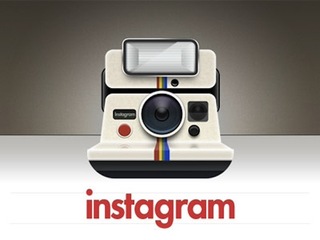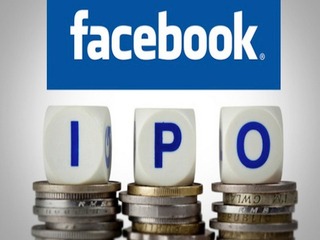
Facebook expected to IPO on May 17
With an anticipated valuation of $104B, the biggest Internet tech IPO ever is just four weeks away

It looks like we can all tentatively mark May 17 on our calendar because reports are coming citing that as the big Facebook IPO date. Sources close to the financial decision leaking that date to reporters over at Tech Crunch, and that day also jibes with many other estimates and the window left by the filing put in earlier this year by the biggest social network online.
The date could still float a little bit based on how long it takes the federal regulators to review Facebook’s recent $1 billion acquisition of mobile-photo-sharing startup Instagram -- but it is likely the company's target date so that it can start trading that Friday, May 18.
Facebook is looking to raise around $10 billion from the stock sale, with valuation as high as . . . wait for it . . . $104 billion.
That would place Facebook at nearly the same level it was trading at on the secondary market -- about $40 a share -- and would make it the largest IPO of any Internet technology company ever.
Due to the silence required up until the IPO, Facebook is not able to comment or confirm the dates of financial expectations it has for its IPO.
The Facebook IPO has been long awaited since the hugely successful offering from online professional networking site Linkedln Corp. last year, which excited many companies about possible IPOs such as Yelp, Jive and Angie's List.
Facebook, which was launched in February 2004, now has well over 800 million users sharing 4 billion items per day.
The last big Internet tech company to IPO was the advertising company Millennial Media IPO, which debuted March 29. Millennial Media had the same underwriters, Morgan Stanley and Goldman Sachs, as Facebook.
Millennial Media expereienced a significant pop in early trading and closed the day at nearly double its $13 IPO price.
Trading under the symbol MM, the stock closed on its debut day at $25 -- which puts the company valuation at nearly $2 billion.
Millennial which filed its first S-1 in early January, raised over $130 million in the offering, which is up from $75 million originally stated in earlier filings.
Two weeks ago we learned that the Nasdaq won a battle with the New York Stock Exchange for one of the highly largest tech IPOs ever -- Facebook. Nasdaq hosts Apple, Microsoft, Amazon and Google, while the NYSE have smaller public tech companies like LinkedIn, Yelp and Pandora Media.
In January, the company halted shares, raising speculation that the IPO would be right around the corner. Now, it's being speculated that the debut day will come some time in May, according to Bloomberg.
By halting the trading of shares, however, Facebook would certainly be letting the market settle down before it goes public. It would end price fluctuations and allow investors to determine its valuation, which is expected to be around $100 billion.
Earlier this month, Facebook took out a $5 billion line of credit and $3 billion 364-day bridge loan.
It was also announced last week that Facebook would only be paying its 31 underwriters, which include Morgan Stanley, J.P. Morgan, Goldman Sachs, Bank of America, Barclays, Citigroup, Wells Fargo, Goldman Sachs, and Allen & Co., a 1.1% fee.
The SEC has even begun cracking down on trading companies who they say were misleading investors looking to buy Facebook stock.
SharesPost, and its CEO Greg Brogger, were accused of not registering as a broker-dealer but still engaging in securities transactions. SharesPost and Brogger agreed to settle and pay penalties, without denying or admitting to guilty to the charges. SharesPost will pay $80,000 and Brogger will pay $20,000.
The company generated $3.7 billion in revenues in 2011, and $1 billion in profits. Net income was $1 billion.
Profits grew 65% last year from $606 million in 2010. And revenues grew 88%.
Up until this point Google's $1.9 billion debut has been the largest U.S. Internet IPO.
The public spent the last three months estimating just how big the company and its bankers were going to go with in the S-1 form -- with many estimates placing the valuation of the company near $100 billion and the total amount the company would raise in its public debut near $10 billion.
In the filing, Facebook disclosed that it has 845 million MAUs as of Dec. 31, 2011, an increase of 39% as compared to 608 million MAUs as of Dec. 31, 2010.
In November, when reports first started trickling out that the company was on the verge of filing paperwork for its IPO with a planned date to hit the markets in May.
Following up the less-than-stellar showings of several recent tech IPOs (from the likes of Pandora, Groupon and Zynga), Facebook appears to be leaning on the conservative side in order to insure a stronger clamor for shares out of the gate.
Image Source: Nerdreactor.com
Related Companies, Investors, and Entrepreneurs
Zynga
Startup/Business
Joined Vator on
Zynga is the largest social gaming company with 8.5 million daily users and 45 million monthly users. Zynga’s games are available on Facebook, MySpace, Bebo, Hi5, Friendster, Yahoo! and the iPhone, and include Texas Hold’Em Poker, Mafia Wars, YoVille, Vampires, Street Racing, Scramble and Word Twist. The company is funded by Kleiner Perkins Caufield & Byers, IVP, Union Square Ventures, Foundry Group, Avalon Ventures, Pilot Group, Reid Hoffman and Peter Thiel. Zynga is headquartered at the Chip Factory in San Francisco. For more information, please visit www.zynga.com.
Yelp
Startup/Business
Joined Vator on
Yelp is the fun and easy way to find, review and talk about what's great (and not so great) in your world. You already know that asking friends is the best way to find restaurants, dentists, hairstylists, and anything local. Yelp makes it fast and easy by collecting and organizing your friends' recommendations in one convenient place.
Yelp is...
...the ultimate city guide that taps into the community's voice and reveals honest and current insights on local businesses and services on everything from martinis to mechanics.
...just real people, writing real reviews, and that's the real deal.
...a fun and engaging place for passionate and opinionated influencers to share the experiences they've had with local businesses and services.
...the definitive local guide in the San Francisco Bay Area and a force to be reckoned with in Chicago, New York, Boston, Los Angeles and Seattle. But really, we're everywhere. From Austin to Madison and everywhere in between, reviews are coming in from all over the country!
...word of mouth marketing - amplified. Savvy local marketers now have a great channel to effectively target local consumers.
Since July 2004, co-founders Jeremy Stoppelman (CEO) and Russel Simmons (CTO) and their Yelp crew have been striving to make life better for people who love to patronize great local businesses. Discovering accurate information on local establishments has never been this entertaining. Writing reviews has never been this fun, easy and addictive!
Pandora
Startup/Business
Joined Vator on
Pandora, the leading internet radio service, gives people music they love
anytime, anywhere, through a wide variety of connected devices: laptop and
desktop computers, smartphones, connected BluRay players, connected TVs,
etc. Personalized stations launch instantly with the input of a single “seed” –
a favorite artist, song or genre. The Music Genome Project®, a deeply
detailed, hand-built musical taxonomy, powers the personalization or
Pandora. Using this musicological “DNA” and constant listener feedback
Pandora crafts personalized stations from the more than 800,000 songs that
have been analyzed since the project began in January 2000.
More than 75 million people throughout the United States listen to
personalized radio stations for free on Pandora through their PCs, mobile
phones and devices such as the iPad, and connected in-house devices
ranging from TVs to set-top boxes to Blu-Ray players. Mobile technology has
been a significant factor in the growth and popularity of Pandora, starting
with the introduction of the Apple app store for the iPhone in the summer of
2008. Pandora instantly became one of the most top downloaded apps and
today, according to Nielsen, is one of the top five most popular apps across
all smartphone platforms.
Pandora is free, simple and, thanks to connectivity, available everywhere
consumers are – at the office, at home, in the car and all points in between.
In 2009 the Company announced that Pandora would be incorporated into
the dashboard in Ford cars via SYNC technology; GM has already followed in
announcing plans to integrate Pandora into its vehicles and Mercedes-Benz
introduced their Media Interface Plus device that works with the
free Pandora iPhone app to provide direct control of Pandora from in-dash
stereo controls. This was all great news for the millions of Pandora listeners
who had been plugging their smartphones into car dashboards to listen to
personalized stations while driving. More than 50 percent of radio listening
happens in the car, making it a crucial arena for Pandora.
Today tens of millions of people have a deeply personal connection with
Pandora based on the delight of personalized radio listening and discovery.
These highly engaged listeners reinforce the value Pandora provides to: 1)
musicians, who have found in Pandora a level playing field on which their
music has a greater chance of being played than ever before; 2) advertisers,
who benefit from the multi-platform reach of Pandora, as well as its best
practices in targeting consumers for specific campaigns; 3) the music
industry, which has found in Pandora a highly effective distribution channel;
and 4) automobile and consumer electronics device manufacturers, who have
noted that incorporating Pandora into their product makes it more valuable
to consumers.
Pandora continues to focus on its business in the United States. The radio
arena has never been hotter, thanks to technology that enables radio to be
personalized to the individual and more accessible than ever before. Right
now millions of people listen to Pandora in the United States and we hope
someday to bring Pandora to billions of people around the world.
Timeline:
• 2000 – Tim Westergren’s Music Genome Project begins.
• 2005 – Pandora launches on the web.
• 2008 – Pandora app becomes one of the most consistently downloaded
apps in the Apple store.
• 2009 – Ford announces Pandora will be incorporated into car
dashboard. Alpine and Pioneer begin selling aftermarket radios that
connect to consumers’ iPhones and puts the control and command of
Pandora into the car dashboard.
• 2010 – Pandora is present on more than 200 connected consumer
electronics devices ranging from smartphones to TVs to set-top boxes
to Blu-ray players and is able to stream visual, audio, and interactive
advertising to computers, smartphones, iPads, and in-home connected
devices.
Startup/Business
Joined Vator on
What is Twitter?
Twitter is an online information network that allows anyone with an account to post 140 character messages, called tweets. It is free to sign up. Users then follow other accounts which they are interested in, and view the tweets of everyone they follow in their "timeline." Most Twitter accounts are public, where one does not need to approve a request to follow, or need to follow back. This makes Twitter a powerful "one to many" broadcast platform where individuals, companies or organizations can reach millions of followers with a single message. Twitter is accessible from Twitter.com, our mobile website, SMS, our mobile apps for iPhone, Android, Blackberry, our iPad application, or 3rd party clients built by outside developers using our API. Twitter accounts can also be private, where the owner must approve follower requests.
Where did the idea for Twitter come from?
Twitter started as an internal project within the podcasting company Odeo. Jack Dorsey, and engineer, had long been interested in status updates. Jack developed the idea, along with Biz Stone, and the first prototype was built in two weeks in March 2006 and launched publicly in August of 2006. The service grew popular very quickly and it soon made sense for Twitter to move outside of Odea. In May 2007, Twitter Inc was founded.
How is Twitter built?
Our engineering team works with a web application framework called Ruby on Rails. We all work on Apple computers except for testing purposes.
We built Twitter using Ruby on Rails because it allows us to work quickly and easily--our team likes to deploy features and changes multiple times per day. Rails provides skeleton code frameworks so we don't have to re-invent the wheel every time we want to add something simple like a sign in form or a picture upload feature.
How do you make money from Twitter?
There are a few ways that Twitter makes money. We have licensing deals in place with Google, Yahoo!, and Microsoft's Bing to give them access to the "firehose" - a stream of tweets so that they can more easily incorporate those tweets into their search results.
In Summer 2010, we launched our Promoted Tweets product. Promoted Tweets are a special kind of tweet which appear at the top of search results within Twitter.com, if a company has bid on that keyword. Unlike search results in search engines, Promoted Tweets are normal tweets from a business, so they are as interactive as any other tweet - you can @reply, favorite or retweet a Promoted Tweet.
At the same time, we launched Promoted Trends, where companies can place a trend (clearly marked Promoted) within Twitter's Trending Topics. These are especially effective for upcoming launches, like a movie or album release.
Lastly, we started a Twitter account called @earlybird where we partner with other companies to provide users with a special, short-term deal. For example, we partnered with Virgin America for a special day of fares on Virginamerica.com that were only accessible through the link in the @earlybird tweet.
What's next for Twitter?
We continue to focus on building a product that provides value for users.
We're building Twitter, Inc into a successful, revenue-generating company that attracts world-class talent with an inspiring culture and attitude towards doing business.
Related News


POP: Millennial Media doubles stock price in IPO debut
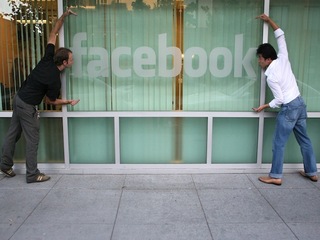
Facebook IPO looming, early 2012 debut expected

Facebook snaps up Instagram for $1B in cash, stock
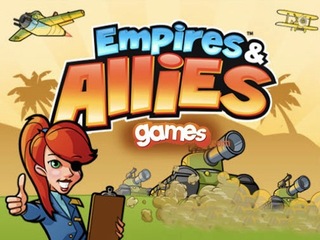
Zynga sees stock jump after Facebook IPO financials
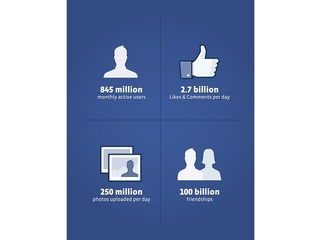
Facebook IPO shows 845 million users
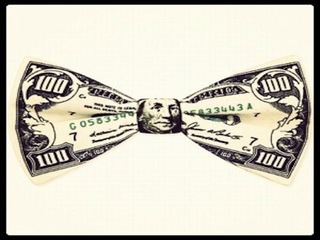
How Instagram's lazer focus snatched $1B from Facebook

With Instagram snapped up, photo-sharing apps to watch
